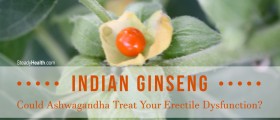
Both groups completed a standard questionnaire on female sexual function. Questionnaire scores lower than 26.5 are considered to denote a high risk of sexual dysfunction. The average score in the study group (infertility group) was 27.1, while the average score in the control (fertile group) was 28.7. Among studied group that represent infertile women, almost 40% scored low on a questionnaire of sexual function to put them at "high risk" of sexual dysfunction, which is comparing to control group of fertile women with only one fourth of them being in high risk group, almost as twice as much. The difference between study and control group is in desire and arousal. Study group (infertile women) did not report problems such as pain during sex or vaginal dryness nor did report problems with orgasms.
The difference was also in how often women have sexual intercourse: infertile group tended to have intercourse less often - an average of seven times per month, while the fertile group had sexual intercourse more than 9 times per month. Additionally, women with fertility problems had a lower average score when it came to rating their sex-life satisfaction. And 34% said they'd had a decline in satisfaction since their infertility diagnosis. Studies about fertility and sexual dysfunction that were presented in the past have found that infertility and fertility treatment can negatively affect both women's and men's emotional well-being and can additionally create marital tension. Couples trying to get pregnant often feel the pressures of "sex-on-demand," which can drain their satisfaction with their sex lives, the researchers say.

















Your thoughts on this
Loading...